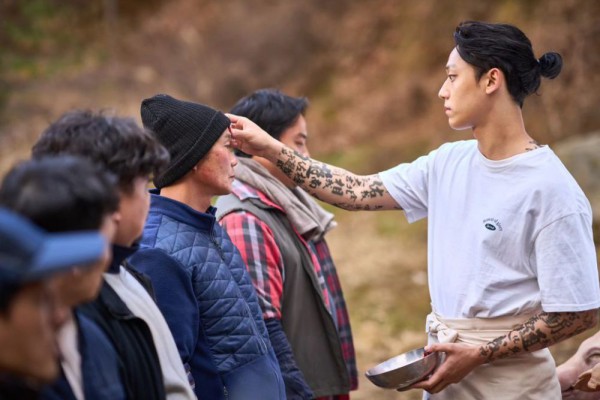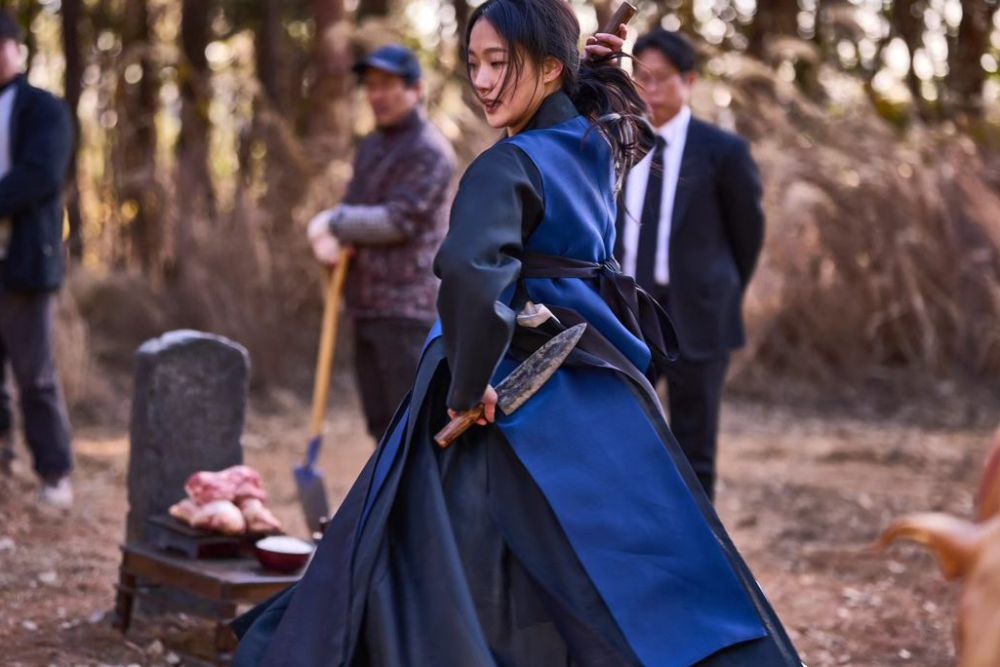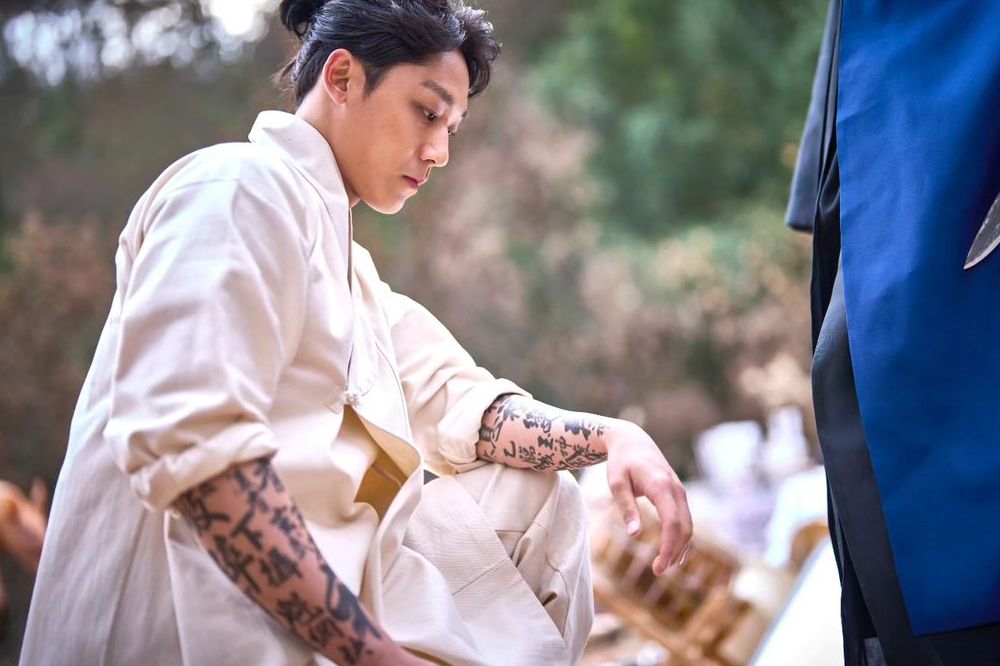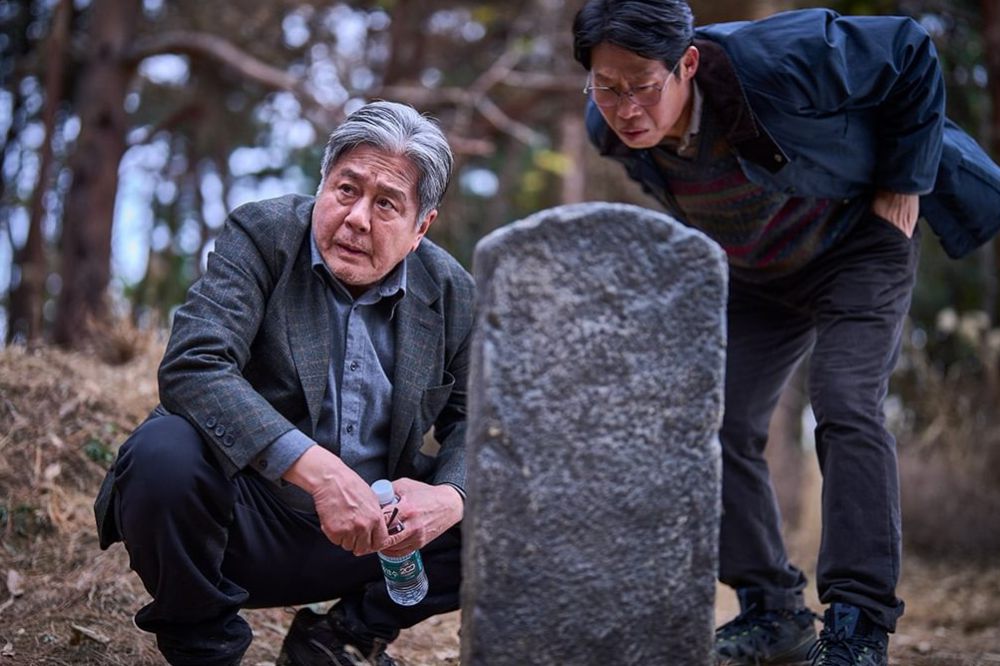Genres Occultism, aka supernatural teachings, is often featured in popular dramas and films from South Korea. One of the things that is being widely discussed is films Exhuma (2024). It tells the story of two young shamans who work together with a feng shui expert to solve a mysterious terror in a conglomerate family. In order to resolve the disturbance, they carried out several rituals and even exorcisms using South Korean-style shamanism.
Apparently, there are interesting details in the occult culture promoted by this film. If you are curious, here are interesting facts about South Korean occultism Exhuma.
1. The ritual performed by Hwa Rim
South Korean shamanism is heavily influenced by the teachings of Buddhism. This is also what Hwa Rim (Kim Go Eun) often does in her practices in films Exhuma. He also carried out several rituals, but the most striking was the ritual of dismantling the Park family grave.
Hwa Rim, assisted by her assistant, Bong Gil (Lee Do Hyun), prepared the details needed during the ritual. For example, large swords or knives, small bells, meat or vegetarian offerings, and traditional musical instruments.
It is known that Hwa Rim was seen throwing both knives to the ground. This is a sign, if the blade is pointing outward then the spirit is already there and vice versa. If you look at the body of the pig that was pierced by the trident stick, everything is in a state of balance, which means the spirit has accepted the offering.
Next, the shaman will continue to dance hysterically while casting spells so that the great energy penetrates the spirit world. Hwa Rim also managed to achieve a supernatural state where knives or even fire could not harm her body. Moreover, the spirit begins to merge with the body in this section. Hwa Rin’s dances are able to connect communication by providing entertainment for ancestral spirits, so that Sang Deuk (ChoI Min Sik) and Young Geun (Yu Hae Jin) can carry out the task of digging graves optimally.
2. Antidote to supernatural attacks in the style of South Korean shamans
In South Korea, customs and several objects are believed to be protectors or wards against supernatural attacks. This can be seen from the details that Hwa Rim and Bong Gil prepared during the rituals. Here’s an example:
- Horse blood is something that goblins or other demons hate. This is proven by the stock of horse blood that Hwa Rim and Bong Gil never forget to carry during the ritual
- Salt can neutralize bad things. Young Geun kept sprinkling salt during the ritual
- Glutinous rice has been believed to eliminate toxins since ancient times. This includes blocking or trapping bad luck just like Hwa Rim did at Boguksa Temple
- Yellow paper talisman. This is like verses from Buddhist scriptures which are believed to ward off supernatural attacks. Of course, each verse in the talisman has its own function
- Diamond Sutra Verse Tattoo. Just like the yellow paper amulet, the full body tattoo that Bong Gil paints is intended as personal protection
- The ancient character 破邪 or 逐鬼 means retreating to lose. Bong Gil wrote these words and gathered all his strength to rise from his depression at Boguksa Temple
- Sweet fish and melon. This is not an antidote, but can be used as bait for Japanese oni generals during the Sekigahara War. Sweet fish are for the generals of the western camp, while melons are for the generals of the eastern camp. Hwa Rim also gave sweet fish because the generals brought to the Korean Peninsula were mostly from the western camp
- Pagoda or Buddha statue. Buddhist demons will not destroy any Buddhist worship sites and immediately retreat when they see them
- The sun and the sound of chickens. Magical creatures will always stop their activities when morning approaches
3. Regarding the eldest son for Korean ancestors
The eldest son in each generation has the task of providing food to deceased ancestors. This is done by holding a death commemoration ceremony on the exact date of death every year. It is believed that ancestral spirits will return home at these times. The eldest son has the obligation to welcome his arrival by providing the ancestor’s favorite foods.
This belief seems to be directly proportional to what the eldest son of the Park family faces. They also experienced terror and disturbance because they did not hold a funeral ceremony every year. The reason is, they want to cover it up and don’t want the ceremony to be so blatant as to reveal the identity of the family who are traitors. The ancestor also expressed his hunger shortly after he managed to escape from the coffin.
These three points are a culture that is still believed by the South Korean people themselves. Film Exhuma insert successfully urban legends local through attractive packaging. Not surprisingly, quite a lot of people are curious about the facts behind this occult culture.



